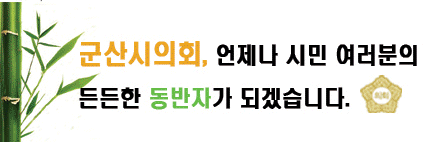[한국방송/장영환기자] 김은경 환경부 장관은 10월 19일 제이콥 엘레만-젠슨(Jakob Ellemann- Jensen) 덴마크 환경식품부장관을 코펜하겐 집무실에서 만나 순환경제 분야 협력을 위한 양해각서를 체결하였다.
순환경제란 제품의 생산 단계부터 폐기물, 폐수 등의 발생을 줄여 환경에 미치는 영향을 최소화하고, 발생한 폐기물 등은 최대한 재활용하여 생산과정에 재투입하는 등 자원을 효율적으로 이용하는 패러다임을 말한다.
이는 유엔(UN) 지속가능발전목표(SDGs) 중 하나인 '지속가능한 소비·생산 구조의 확립’을 달성하기 위한 핵심수단으로,
자원고갈과 다량의 폐기물을 발생시켰던 기존 경제패러다임에서의 환경 문제를 해결하는 동시에, 자원 감축 및 재활용 기술 개발과 혁신을 통한 새로운 경제발전 추진과 부가가치 창출의 원천으로 주목받고 있다.
우리 정부도 올해 초부터 자원순환기본법을 시행하고 지난달 4일에는 제1차 자원순환기본계획을 발표하는 등 지속가능한 순환경제 실현을 위한 정책을 추진 중이다.
환경부 관계자는 "순환경제 선도국인 덴마크와 양해각서를 체결함으로써 자원효율성 향상, 플라스틱 폐기물 감축 등 정책 현안에 대한 파트너십을 구축하고, 양국 간 공동 연구를 추진하는 등 가시적 성과를 도출해 나갈 수 있을 것으로 기대한다"라고 밝혔다.
김은경 장관은 10월 18일부터 20일까지 '녹색성장 및 2030 글로벌 목표를 위한 연대(P4G, Partnering for Green Growth and the Global Goals 2030)'정상회의 참석을 위해 코펜하겐을 방문 중이다.
MEMORANDUM OF UNDERSTANDING
FOR COOPERATION IN THE FIELD OF
CIRCULAR ECONOMY
BETWEEN
THE MINISTRY OF ENVIRONMENT
OF THE REPUBLIC OF KOREA
AND
THE MINISTRY OF ENVIRONMENT & FOOD OF THE KINGDOM OF DENMARK
OCTOBER 2018
The Ministry of Environment of the Republic of Korea
and
the Ministry of Environment & Food of the Kingdom of Denmark
(hereinafter referred to as “the Sides")
REFERRING to the Green Growth Alliance under the Strategic Partnership between the Republic of Korea and the Kingdom of Denmark as well as the Memorandum of Understanding on Cooperation in the Field of Environmental Protection between the Ministry of Environment of the Republic of Korea and the Ministry of the Environment of the Kingdom of Denmark signed in September 2012;
RECOGNIZING their common interests and the necessity of developing more sustainable production and consumption patterns in order to reduce waste, water and energy consumption and the exploitation of natural resources, in order to reach the UN Sustainable Development Goals and the ambitions of the Paris Declaration on climate change, and understanding that it requires substantial changes and rethinking of the way our economies operate from linear systems, where raw materials end up as waste to a circular economy, where the consumption of energy, water and natural resources is limited through reduced consumption, reuse of products and recycling of materials;
ACKNOWLEDGING the policies and targets set forth by the Sides on circular economy as well as the need to further develop policies, strategies, technologies and concrete actions to promote circular approaches;
DESIRING to strengthen their bilateral comprehensive partnership for the economic development and prosperity of both countries through cooperation in the field of circular economy and to actively lead the work within the framework of the Partnering for Green Growth and the Global Goals 2030 (P4G);
The sides have reached the following understanding:
Paragraph 1
Objective
This Memorandum of Understanding (hereinafter referred to as the "MoU") aims to strengthen comprehensive and diverse cooperation in the field of circular economy through joint projects, research and development, such as cooperation in innovation and new technology research, and government and private sector exchanges on the basis of the principles of mutual benefit, equality and reciprocity.
Paragraph 2
Areas of Cooperation
The Sides will carry out cooperation and exchange activities in areas including, but not limited to, the following:
overarching policies, strategies and regulations in relation to promotion of a circular economy (including approaches to the reduction of plastic waste);
promotion of circular economy approaches in the building sector with special focus on reuse and recycling of construction and demolition waste;
promotion of increased resource efficiency in industrial production through industrial symbiosis approaches that encourage the exchange of resources in terms of materials, water and energy (with a special emphasis on wastewater treatment, industrial water efficiency, reduction of carbon emissions, energy and heat production, and resource and nutrient recovery);
promotion of smart strategies in water management that can tackle the problems of water scarcity, poor water resources and water pollution;
joint research collaboration on new technologies and economic models, which can stimulate transition to a circular economy;
identification of funding opportunities for projects that promote cooperation and contribute to the development of circular economy approaches and solutions, including developing pilot projects within relevant areas and sectors; and
other areas related to circular economy that may be jointly decided upon by the Sides.
Further specific projects within the above-mentioned areas will be laid out in detail amongst relevant stakeholders.
Paragraph 3
Means of Cooperation
The Sides will cooperate through the following means:
exchange of policy information on circular economy;
establishment of a joint expert committee in selected focus area for cooperation
support for joint projects and research between special government agencies and knowledge institutions;
facilitation of private sector exchanges and commercial activities in the two countries;
seminars and working-level meetings;
promotion of public-private partnerships in order to facilitate development and demonstration of new technologies through pilot projects; and
joint efforts to identify circular economy approaches, which can be disseminated to developing countries via P4G partnerships or other means of joint cooperation.
Paragraph 4
General Provisions
This MoU is not intended to affect the two countries’ respective rights and responsibilities under international law.
This MoU will be implemented within the framework of the respective domestic laws and regulations of the two countries and subject to the availability of appropriated funds and personnel of the Sides.
Paragraph 5
Dispute Settlement
Any disputes arising in relation to the interpretation or implementation of this MoU will be settled amicably by consultation or negotiation between the Sides.
Paragraph 6
Entry into Effect, Duration, Termination, and Amendment
This MoU will have a duration of five (5) years, commencing on the date of its signature by both Sides.
This MoU will automatically be extended for a successive five-year (5) period unless one of the Sides notifies the other Side in writing of its desire not to extend the MoU at least three (3) months prior to the end of the initial five-year (5) period.
This MoU may be amended if jointly decided upon by both Sides in writing.
Signed in duplicate at XXX on the 19th day of October 2018 in the English language.
For the Ministry of Environment of the Republic of Korea | For the Ministry of Environment & Food of the Kingdom of Denmark |
------------------------------------ Kim Eunkyung |
------------------------------------ Jakob Ellemann- Jensen |













